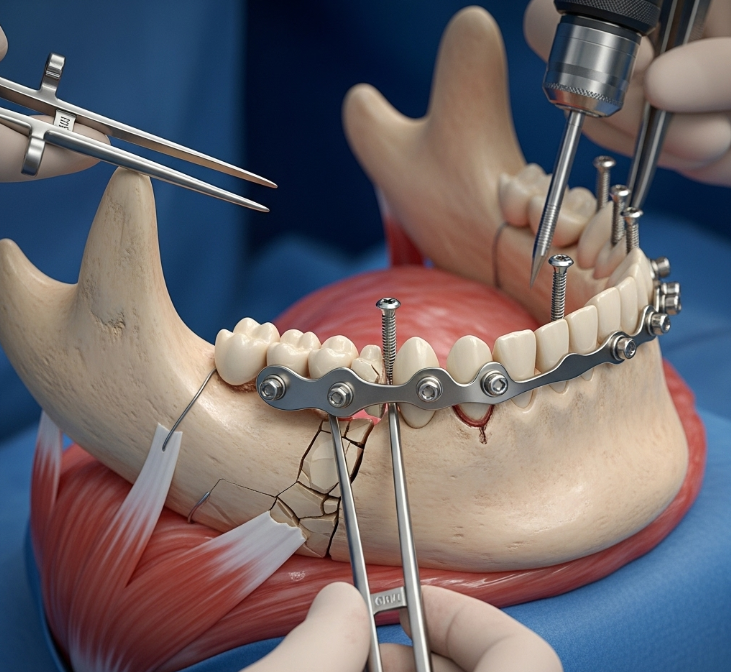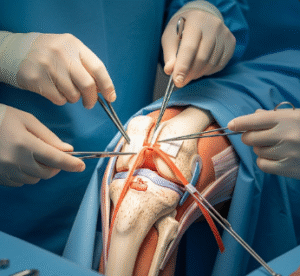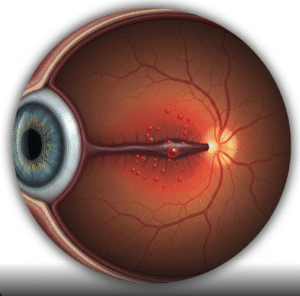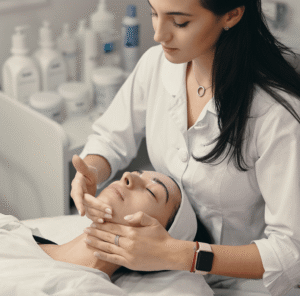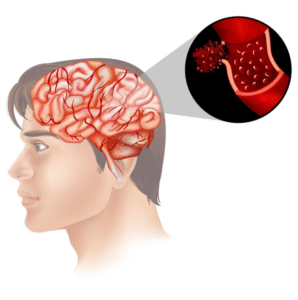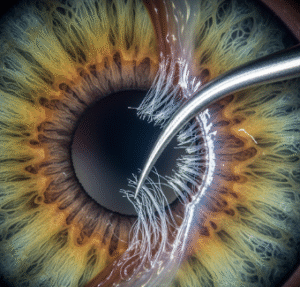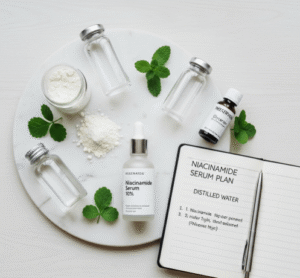What It Is
Mandible fracture ORIF (Open Reduction and Internal Fixation) is a surgical procedure to repair a broken jawbone (mandible). The mandible is the largest and strongest facial bone, crucial for chewing, speaking, and facial symmetry. Fractures can occur due to accidents, sports injuries, assaults, or falls.
In ORIF, the fractured bone is surgically exposed (open reduction), repositioned, and stabilized using titanium plates and screws (internal fixation) to restore both function and aesthetics. Korea is well known for its expertise in maxillofacial surgery, using advanced imaging and 3D surgical planning for highly precise reconstructions.
Why It’s Done
Patients undergo mandible fracture ORIF because:
- They cannot chew, speak, or open their mouth properly due to misalignment.
- The jaw appears asymmetrical or displaced.
- Fracture causes tooth misalignment (malocclusion).
- Untreated fractures could lead to chronic pain, deformity, or joint problems.
Good candidates include:
- Patients with displaced or unstable fractures.
- Individuals in good health who can undergo surgery under anesthesia.
- Patients needing both functional and cosmetic restoration.
Alternatives
- Closed reduction (intermaxillary fixation): Wires or elastics are used to hold the jaw shut; suitable for minor fractures.
- Non-surgical management: Pain control, soft diet, and observation in non-displaced fractures.
- External fixation: Rarely used, but an option for complex or contaminated injuries.
Preparation
Before undergoing mandible ORIF in Korea, patients will:
- Have a CT scan and panoramic X-rays to assess the fracture.
- Receive a dental evaluation for occlusion planning.
- Stop smoking and alcohol 2–4 weeks before surgery.
- Avoid blood-thinning medications and certain supplements.
- Discuss possible need for arch bars, braces, or implants during recovery.
How It’s Done
- Anesthesia: General anesthesia is required.
- Incision: Surgical cuts are made inside the mouth or, rarely, outside the face (hidden when possible).
- Bone repositioning: The fractured mandible is realigned to restore bite and symmetry.
- Fixation: Titanium plates and screws are used to stabilize the bone.
- Closure: The incision is sutured with dissolvable stitches in most cases.
- Duration: 1–3 hours depending on complexity.
Recovery
- First week: Swelling, bruising, and mild pain are common. Patients are placed on a soft or liquid diet.
- Hospital stay: Usually 2–5 days.
- Return to activities: Light duties after 1–2 weeks; heavy activity avoided for 6–8 weeks.
- Bone healing: Typically takes 6–8 weeks; full function restored in 2–3 months.
- Final results: Proper bite alignment, restored jaw function, and normal facial appearance.
Possible Complications
- Infection at the surgical site.
- Numbness of the lower lip or chin due to nerve involvement.
- Malocclusion (misaligned bite) requiring adjustment.
- Plate or screw loosening (rare).
- Visible scarring if external incisions are used.
Treatment Options in Korea
Diagnosis
Korean maxillofacial surgeons use CT scans, panoramic imaging, and 3D virtual planning to evaluate fractures and simulate surgical outcomes.
Medical Treatments
- Pain management, antibiotics, and soft diet for non-surgical cases.
- Arch bars or splints for temporary stabilization.
Surgical or Advanced Therapies
- ORIF with titanium plates and screws for displaced fractures.
- Endoscopic-assisted ORIF in select cases to minimize scarring.
- Reconstructive techniques (bone grafts, custom implants) for comminuted or severe fractures.
- Orthognathic-style fixation for complex jaw realignment.
Rehabilitation and Support
- Soft diet for 4–6 weeks after surgery.
- Regular dental and surgical follow-ups to ensure occlusion is correct.
- Physiotherapy for jaw mobility if stiffness develops.
- International patients benefit from Korea’s state-of-the-art maxillofacial centers, advanced imaging, and multilingual aftercare teams.

